Filter by

A Grammar of the Sungskrit Language To Which Are Added Examples for the Exer…
The Indo-Aryan language of Sanskrit is the primary language of Hinduism and also a scholarly language of Buddhism. Dating back to the second millennium BCE, it is considered to be the parent of most modern languages of India, and remains central to work in Indo-European studies, philology and linguistics today. First published in 1806, this is a comprehensive grammar of Sanskrit, compiled by th…
- Edition
- -
- ISBN/ISSN
- 9781139507264
- Collation
- -
- Series Title
- Cambridge Library Collection - Perspectives from the Royal Asiatic Society
- Call Number
- -

A Grammar of the Mahratta Language To Which Are Added Dialogues on Familiar …
Marathi, an official language of Maharashtra and Goa, is among the twenty most widely spoken languages in the world. The southernmost Indo-Aryan language, it is also spoken in Gujarat, Madhya Pradesh, Karnataka, and Daman and Diu, and is believed to be over 1,300 years old, with its origins in Sanskrit. First published in 1805, this grammar of Marathi (then known as Mahratta) was compiled by th…
- Edition
- Ed. 1
- ISBN/ISSN
- 9781139519847
- Collation
- -
- Series Title
- -
- Call Number
- -
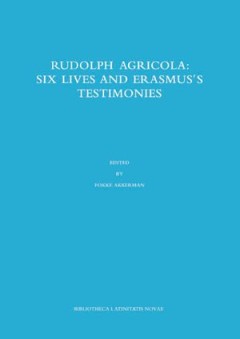
Rudolph Agricola : Six Lives and Erasmus’s Testimonies
Rudolph Agricola: Six Lives and Erasmus’s Testimonies The Frisian humanist Rudolph Agricola (1443-1485) is rightly famous for single-handedly bringing the Italian Renaissance to the North. Owing to his fascinating personality and many talents, he attracted the love and admiration of his contemporaries and the following generations. As a result, six biographies on Agricola have been preserved.…
- Edition
- -
- ISBN/ISSN
- 978 90 232 5072 2
- Collation
- -
- Series Title
- -
- Call Number
- 144.092 RUD
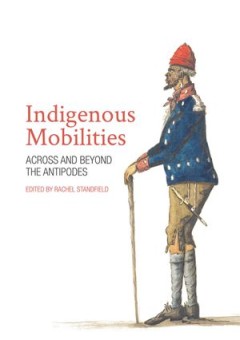
Indigenous Mobilities: Across and Beyond the Antipodes
This edited collection focuses on Aboriginal and Māori travel in colonial contexts. Authors in this collection examine the ways that Indigenous people moved and their motivations for doing so. Chapters consider the cultural aspects of travel for Indigenous communities on both sides of the Tasman. Contributors examine Indigenous purposes for mobility, including for community and individual econ…
- Edition
- -
- ISBN/ISSN
- 9781760462147
- Collation
- -
- Series Title
- -
- Call Number
- 911 IND i
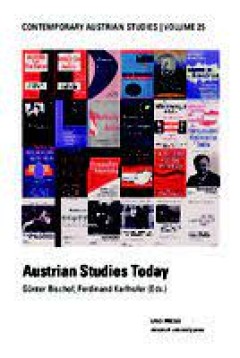
Austrian Studies Today
"This volume celebrates the study of Austria in the twentieth century by historians, political scientists and social scientists produced in the previous twenty-four volumes of Contemporary Austrian Studies. One contributor from each of the previous volumes has been asked to update the state of scholarship in the field addressed in the respective volume. The title “Austrian Studies Today,” t…
- Edition
- -
- ISBN/ISSN
- 9783903122178
- Collation
- -
- Series Title
- -
- Call Number
- -
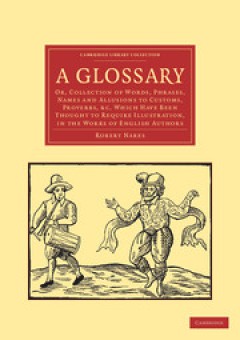
A Glossary Or, Collection of Words, Phrases, Names and Allusions to Customs,…
Originally published in 1822, Robert Nares' glossary of antiquated Elizabethan terms is the result of a personal interest in and love of Elizabethan literature. Nares (1753–1829), well known as a scholar and clergyman, was also a keen philologist and antiquary. This glossary was undertaken in his spare time, and compiled over forty years as he was often occupied with various academic and cler…
- Edition
- -
- ISBN/ISSN
- 9781139093781
- Collation
- -
- Series Title
- Cambridge Library Collection - Literary Studies
- Call Number
- -

A Geographical Survey of Africa Its Rivers, Lakes, Mountains, Productions, S…
James MacQueen (1778–1870) was a British geographer and also one of the most outspoken critics of the methods of the British anti-slavery campaign in the 1820s and 1830s. Although he never visited Africa, he became an acknowledged expert on the continent, through reading all available accounts, ancient and modern, as well as interviewing slave merchants while managing a sugar plantation in th…
- Edition
- -
- ISBN/ISSN
- 9781139034562
- Collation
- -
- Series Title
- Cambridge Library Collection - African Studies
- Call Number
- -

A Geographical and Commercial View of Northern Central Africa
James MacQueen (1778–1870) was a British geographer fascinated by the problem of the River Niger. He set out to try to establish (on the basis of accounts by explorers, traders and missionaries), that one and the same river flowed continuously through Africa and into the Atlantic Ocean, thus challenging long-established beliefs that African rivers either disappeared into the sand or terminate…
- Edition
- -
- ISBN/ISSN
- 9781139034579
- Collation
- -
- Series Title
- Cambridge Library Collection - African Studies
- Call Number
- -
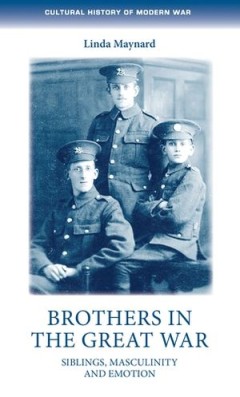
Brothers in the Great War: Siblings, masculinity and emotions
Drawing on a broad range of personal accounts, this is the first detailed study of siblinghood in wartime. The relative youth of the fighting men of the Great War intensified the emotional salience of sibling relationships. Long separations, trauma and bereavement tested sibling ties forged through shared childhoods, family practices, commitments and interests. We must not equate the absence of…
- Edition
- -
- ISBN/ISSN
- 9781526146144
- Collation
- -
- Series Title
- -
- Call Number
- 808.83 MAY b
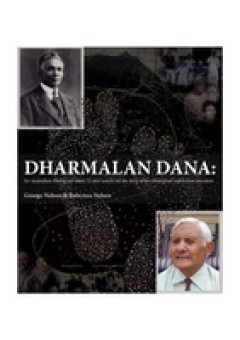
Dharmalan Dana
A Yorta Yorta man’s seventy-three-year search for the story of his Aboriginal and Indian ancestors including his Indian Grampa who, as a real mystery man, came to Yorta Yorta country in Australia, from Mauritius, in 1881 and went on to leave an incredible legacy for Aboriginal Australia. This story is written through George Nelson’s eyes, life and experiences, from the time of his earliest …
- Edition
- -
- ISBN/ISSN
- 9781925021493
- Collation
- -
- Series Title
- -
- Call Number
- -
 Computer Science, Information & General Works
Computer Science, Information & General Works  Philosophy & Psychology
Philosophy & Psychology  Religion
Religion  Social Sciences
Social Sciences  Language
Language  Pure Science
Pure Science  Applied Sciences
Applied Sciences  Art & Recreation
Art & Recreation  Literature
Literature  History & Geography
History & Geography